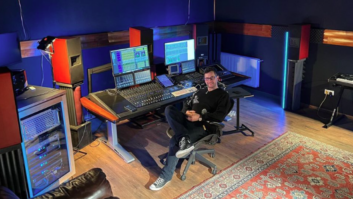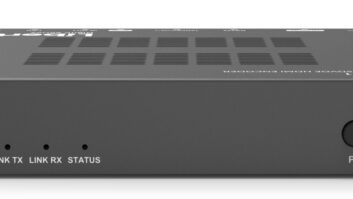
Having previously looked at the level of competition there is for tenders, before revealing the unrealistic price expectations clients often have. Ian McMurray concludes this feature by considering what integrators can do to maximise their chances of winning a project tender.
The ultimate question has to be: is it possible to circumnavigate price sensitivity in the market? Yes, it is – and there are various ways. For John Masters, who is director, global enterprise framework at AVMI, it’s about a strategy of targeting organisations who are specifically looking for longer term engagements.
“At AVMI, we focus on working with customers that want one or a few ‘preferred’ service providers operating under a multi-project framework – and so the majority of the RFPs we participate in are for those frameworks, which typically include the provision of consulting, project management, maintenance and other professional services in line with various rate cards and other algorithms.”
“In a framework-driven relationship, all pricing is covered by the framework,” he continues. “That means there is one big negotiation up front – and then it’s smooth, efficient and therefore fast delivery for perhaps three years. Project-by-project negotiations can take up lots of time that most customers simply don’t have.”
One of the best-loved approaches throughout sales history to minimising potential discussions about price has to be to get to know the customer before he even goes out to tender.
“The role of the integrator can start at the conception of a project, rather than at the end when a final fit-out is being planned,” says Spiros Andreou, service delivery manager at CDEC. “However, competing on price for a pre-defined list of equipment is still the norm in the AV world, particularly in higher education and government sectors. This should evolve to incorporate more of the quality and service a provider can deliver around the project.”
Slim chance
It has always been something of a truism in sales that, if you receive a request for tender for an opportunity you knew nothing about, your likelihood of winning is undoubtedly slim: the chances are, you’re just there to make up the numbers – and another company has probably set the agenda.
Mark Childerhouse, sales director at Pioneer Group, agrees that an integrator’s chances are improved if they engage early.
“In an ideal world, you would meet the customer before you bid for a project to get a better understanding of what they are looking to achieve, get an insight into the areas of the project where you can provide consultation, and discover elements of the project where to best deploy team skills,” he observes. “The best results are often based on chemistry with the client’s team, collaborating to problem solve and also ensuring that the response is future-proofed- all of which are missing for many competitive tenders at the moment. “
Early engagement means, of course, that the scope and requirements of the installation are jointly developed – and a savvy integrator will be ensuring that those requirements play to his strengths.
In turn, that leads to the development of partnerships – a grossly overused word, but a concept that still has resonance, distinguishing the relationship from one that is merely that of a buyer and seller.
“In an ideal world, we would deal direct one-to-one with a client, developing a long-term strategy and a true partnership,” says Colin Etchells, group technical director at Saville Group. “With a number of corporate clients, we have that relationship – and it allows a trust and deep understanding of a client’s requirements and how they may change and develop.”
That emphasis on long-term planning is one in which AVMI’s Masters believes.
“We see more and more organisations shifting from a project-by-project model to a multi-project framework model – indeed, in some cases, an outsourced model,” he notes. “This is especially true for large global organisations which may have hundreds of projects per year globally, all of which follow standards for technology, installation and IT security and all of which are provisioned to the same infrastructure and management platforms for a centralised support service.”
Options and costs
CDEC’s Andreou has one final thought about how best to convey value – by laying out the possible approaches, each with an associated price.
“Every customer has budgetary challenges,” he says, “and the best integrators will have an open conversation about what is achievable at each level, providing options and costs for a range of approaches.”
Mature integrators like AVMI, CDEC, Pioneer and Saville clearly understand the rules of engagement – and their current pre-eminent position in the market testifies to their key abilities. Perhaps first and foremost among these is an understanding of the constraints under which their customers are operating: the budget available for any given project will rarely be ideal. But, they’re also realistic when it comes to assessing the value of a deal to them, which can be measurable in terms other than the bottom line. All four also have a clear understanding of the changing dynamics in the industry – and especially the need to develop close relationships with not only their customers, but also their suppliers.
Perhaps most of all, though, they understand, and are confident in, what they bring in terms of expertise, experience and track record. Yes, price will always be important – but they know that few customers are not sensitive to the concept of value that extends far beyond hardware prices. And they’re able to articulate that value, allowing them to maintain the margin that allows them to continue to invest in their business – to the benefit of their customers. It’s a classic win/win – which, as any sales trainer will confirm, is the ideal outcome of any sale.
www.avmi.com
www.cdec.co.uk
www.pioneergroup.co.uk
www.visavvi.com







